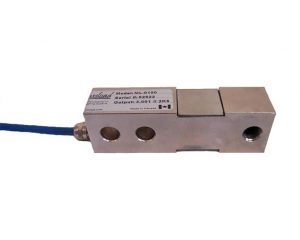 August 28, 2023
August 28, 2023
Weighing bulk products in industrial operations requires incredible accuracy. The process of measuring elements in a hopper is a time-consuming process when conducted manually. A hopper weighing system uses precision load cells to streamline the process of measuring hopper contents.
What is a Weigh Hopper Batching System?
Often used in food processing, pharmaceuticals, cement, construction, and more, hopper weighing systems expedite manual weighing processes for batch mixing. Batch weighing systems use hopper scale load cells to measure bulk products with high levels of accuracy. Ingredients added to the weigh hopper are metered out into the mixing process, with precision load cells verifying the correct amount by calculating the changing hopper scale weight in real-time.
How Load Cells are Used in Hopper Weighing Systems
Scale hoppers use precision load cells to measure bulk products accurately. Weigh hopper load cells use stress points to calculate the applied force of the contents in the hopper. Precision load cells used in hopper weighing systems can pinpoint measurements down to decimals, resulting in high levels of accuracy needed by industrial mixing and batch weighing operations.
Choosing a hopper weighing system using precision load cells over traditional manual weighing processes provides several advantages, including:
- Accurately controlling the mix ratio of bulk products
- Reducing waste and costs
- Improved efficiency and productivity
- Enhanced safety
Weigh hoppers using precision load cells provide reliable and accurate measurements for industrial processes. This minimizes the risk of lost product and accidents or injury, improving the work environment while increasing efficiency.
Challenges for Hopper Scale Load Cells in Tank Weighing Systems
Using a batch weighing system and precision load cells in hopper scales also come with specialized challenges. If a hopper scale is overloaded, an increase in errors can be expected.
When the limit of a weigh hopper is exceeded, the batch weighing system can experience higher levels of non-linearity and hysteresis. Hysteresis and non-linearity can combine to create a critical error in hopper scales. Determining the accuracy class will resolve this error in hopper weighing systems.
The risk of hopper scale error can be eliminated by not over-loading and regular scale maintenance. General scale maintenance and calibration also assist with inaccurate measurements.
Calibration & Maintenance of Batch Weighing Systems
Regular maintenance and calibration of hopper weighing systems ensure optimal performance. The accuracy and reliability of a hopper scale load cell are dependent on the weigh hopper being properly calibrated. Static weight tests and material tests can be conducted to evaluate hopper scale measurement precision.
Material tests are the most accurate calibration method. Using a platform scale, weighing a test load calculates the known weight, and then the material can be weighed before and after to determine inaccuracy. Also providing a method of calibration are static weight tests. In a static weight test, test weights are hung from the hopper load cells to assess if the scale is weighing correctly. Prioritizing calibration and service of hopper scale load cells and hopper weighing systems ensures that batch weighing systems remain operational and precise.
Precision Load Cells for Hopper Scales from Massload Technologies
Looking for a weigh hopper load cell for your application? Contact Massload for more on precision load cells, truck weighing, and batch weighing systems that meet your industrial measuring requirements. Not sure which precision load cell is appropriate for your application? Request a quote for a custom solution from Massload Technologies, a weight industry leader since 1981.


